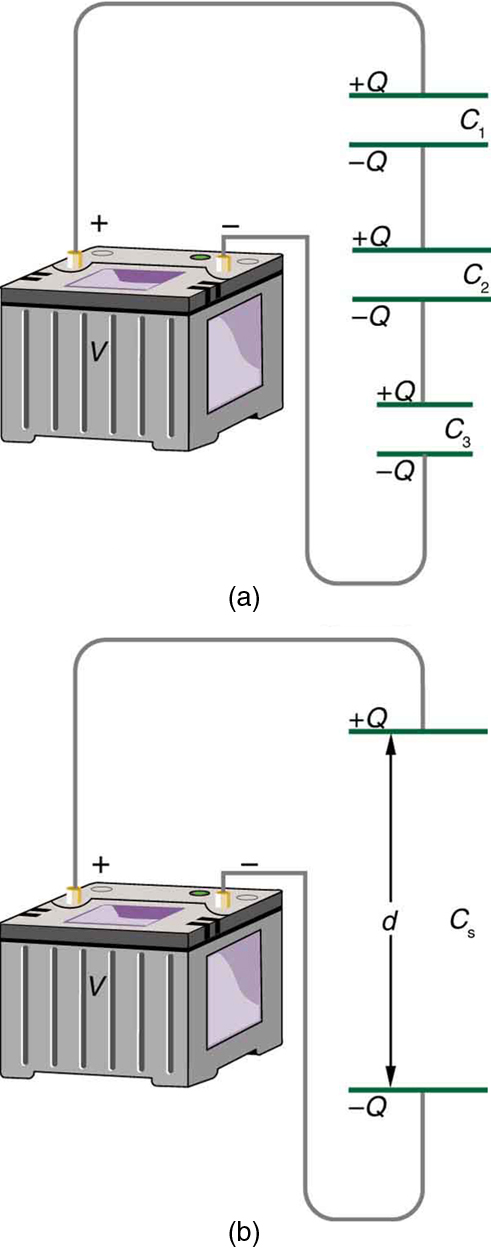| << Chapter < Page | Chapter >> Page > |
Several capacitors may be connected together in a variety of applications. Multiple connections of capacitors act like a single equivalent capacitor. The total capacitance of this equivalent single capacitor depends both on the individual capacitors and how they are connected. There are two simple and common types of connections, called series and parallel , for which we can easily calculate the total capacitance. Certain more complicated connections can also be related to combinations of series and parallel.
[link] (a) shows a series connection of three capacitors with a voltage applied. As for any capacitor, the capacitance of the combination is related to charge and voltage by .
Note in [link] that opposite charges of magnitude flow to either side of the originally uncharged combination of capacitors when the voltage is applied. Conservation of charge requires that equal-magnitude charges be created on the plates of the individual capacitors, since charge is only being separated in these originally neutral devices. The end result is that the combination resembles a single capacitor with an effective plate separation greater than that of the individual capacitors alone. (See [link] (b).) Larger plate separation means smaller capacitance. It is a general feature of series connections of capacitors that the total capacitance is less than any of the individual capacitances.

We can find an expression for the total capacitance by considering the voltage across the individual capacitors shown in [link] . Solving for gives . The voltages across the individual capacitors are thus , , and . The total voltage is the sum of the individual voltages:
Now, calling the total capacitance for series capacitance, consider that
Entering the expressions for , , and , we get
Canceling the s, we obtain the equation for the total capacitance in series to be
where “...” indicates that the expression is valid for any number of capacitors connected in series. An expression of this form always results in a total capacitance that is less than any of the individual capacitances , , ..., as the next example illustrates.
Total capacitance in series:
Find the total capacitance for three capacitors connected in series, given their individual capacitances are 1.000, 5.000, and 8.000 .
Strategy
With the given information, the total capacitance can be found using the equation for capacitance in series.
Solution
Entering the given capacitances into the expression for gives .
Inverting to find yields .
Discussion
The total series capacitance is less than the smallest individual capacitance, as promised. In series connections of capacitors, the sum is less than the parts. In fact, it is less than any individual. Note that it is sometimes possible, and more convenient, to solve an equation like the above by finding the least common denominator, which in this case (showing only whole-number calculations) is 40. Thus,
so that

Notification Switch
Would you like to follow the 'College physics (engineering physics 2, tuas)' conversation and receive update notifications?